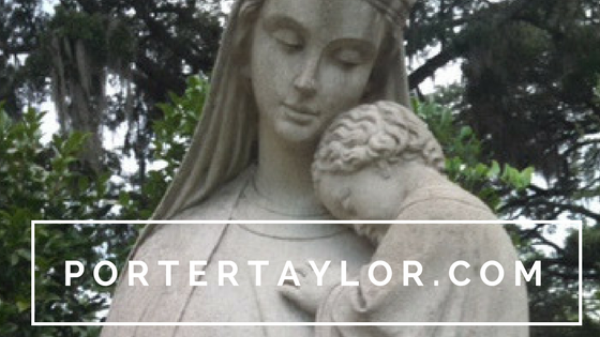The Power of Story
My wife, Jo, and I spent three weeks at the beach. We had planned on a month but then hurricane Matthew came and changed our plans. After the storm, we walked on the beach, ate lots of seafood, saw some old friends and read. We read a lot. I want to recommend some novels to you, but first tell you why it’s important to have these stories inside us.
The poet Elizabeth Sewell once wrote: “We feel after our fate in the lines of other lives, and for this learning it matters little whether those figures be real, as we say, or imagined, so long as they live.” She means we come to see our own story most clearly through other’s lives. Stories provide what T.S. Eliot called an “objective correlative.” Because we literally cannot see ourselves, we look at others and have a moment of recognition. It’s not so much that we are interested in Hester Prynne or Ahab or Holden Caulfield; it’s that by knowing their lives, we discover our own.
It’s why Jesus answered questions with a story. There’s no other way to talk about the kingdom of heaven or anything else that has depth. When we meet someone, the way we know them is by sharing our story with theirs.
This process of discovery is continuous. Sometimes I have to live into a book. You can’t understand King Lear until you have suffered great loss. It doesn’t make sense at sixteen but makes all kinds of sense at sixty.
I would also assert that part of what ails our country today is that we are losing a cohesive story. As a result, our politicians offer competing stories about what matters for our nation and what threats it but mostly their stories are too small and confined to why we shouldn’t vote for their opponent. They don’t point a story large enough for everyone. Without a common story or a common narrative, it’s hard to have conversation, and we find ourselves back at the Tower of Babel.
I don’t say that if everyone read novels we’d have heaven on earth, but I do say that the lack of a corporate imagination hinders our common life and our ability to find communion. Dostoyevsky claimed, “Beauty can change the world” because he knew that art offers a vision, a new way of seeing, a hidden world of possibilities, as well as connecting us to our hearts. Truthfully the world made a whole lot more sense to me reading novels at the beach instead of watching CNN much less the debates.
My retirement vows are to exercise, to pay more attention to my family, to write, and to read novels---real novels: the kind that make you laugh and weep and wonder. Here some that I’ve read mostly at the beach and would recommend. Now that I have time to read, I intend to offer book recommendations periodically. Happy reading.
+Porter
Foregiveness4You— Ann Bauer
A novel about an ex-priest who is recruited to begin a for profit enterprise to offer absolution to non-church people. An easy read but very funny and for church folks thought provoking.
Everyone Brave is Forgiven Chris Cleave
One of the most beautiful novels I have read. In World War II a British man and a woman fall in love in London only to be separated by the war. The novel switches between his war experience and her activity the war torn city.
The Last Painting of Sara de Vos Dominic Smith
And amazing book about a painting from the 17th century and how a contemporary art dealer handles a forgery. The novel is told in three time periods. You learn a lot about forgery and the art world but more importantly about creativity and the bonds that hold us together.
The Guineveres Sarah Domet
This is Ms. Domet’s first novel but what a start. It’s about four girls named Guinevere in a strict convent school and how they survive. It’s funny and seems lightweight but has a cumulative power to it. Plus, it’s fun to read.
The Far Away Nearby Rebecca Solnit
A book long essay about her mother especially after her mother’s Alzheimer. The book’s central focus is on the redemptive power of storytelling and how our sense of the past changes. Beautifully written.

